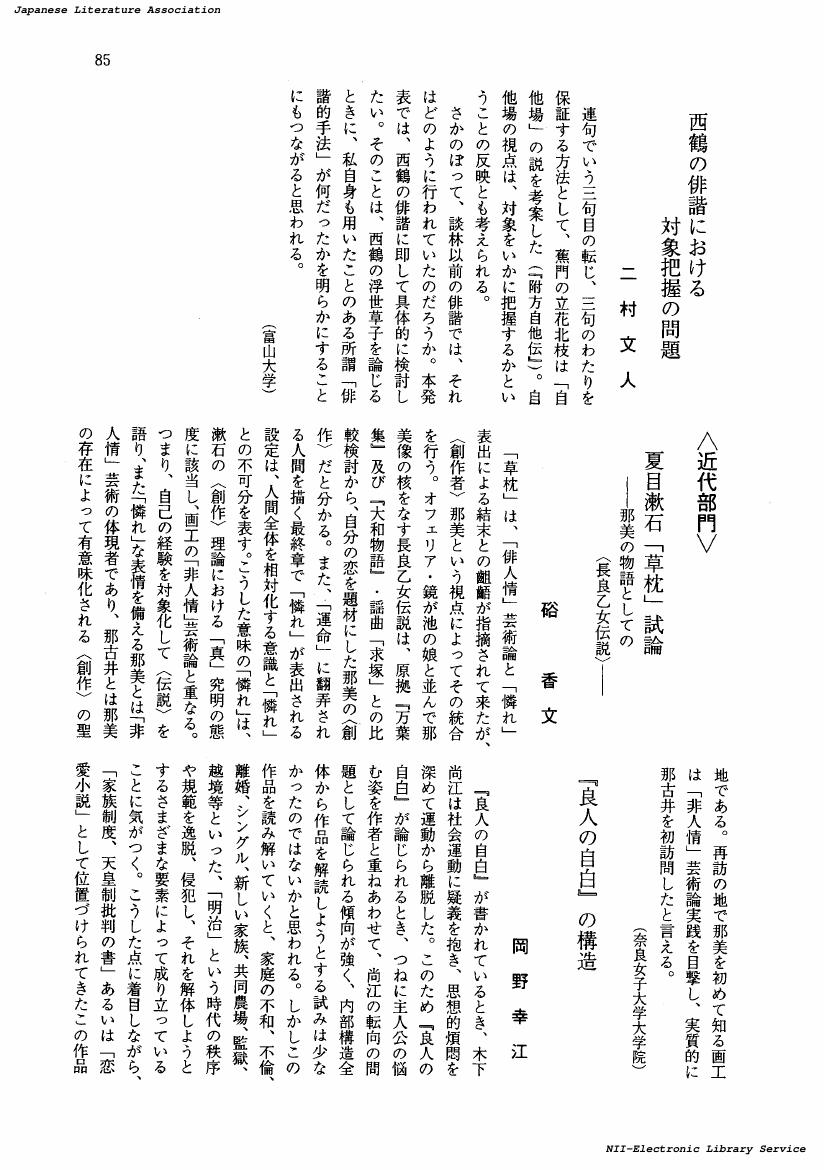- 著者
- 硲 香文
- 出版者
- 日本文学協会
- 雑誌
- 日本文学 (ISSN:03869903)
- 巻号頁・発行日
- vol.44, no.6, pp.85, 1995-06-10 (Released:2017-08-01)
1 0 0 0 OA 夏目漱石「夢十夜」と中国〈再生譚〉 ―「第一夜」の逆説性
- 著者
- 硲 香文
- 出版者
- 日本比較文学会
- 雑誌
- 比較文学 (ISSN:04408039)
- 巻号頁・発行日
- vol.38, pp.22-34, 1996-03-31 (Released:2017-06-17)
With the exception of ‘Dai-Ichi-Ya’ or ‘The First Night’,in which the goal of ‘waiting’ is fulfilled, until now the overall theme of “Yume-Jū-Ya” or “Dreams of Ten Nights” has been construed as‘waiting in vain’. In this paper I will attempt a refutal of former studies on the subject, and redefine the story’s theme. Some scholars contend that “Yume-Jū-Ya” was written as a ghost story. Likewise, while numerous Chinese short stories of the Six Dynasties and of the Tang Dynasty, as well as some which appear in Liaozhaizhiyi, are considered rebirth stories, they are also classified as ghost stories. Each of the two characters in ‘Dai-Ichi-Ya’ makes a promise: the woman vows to return in one hundred years, and the man promises to wait for her. A similar scene appears in Liaozhaizhiyi’s “Liansuo” in which setting a fixed time, and a promise to wait, are considered necessary conditions for rebirth. Hence, if the living person in the pact does not wait for the dead person, the latter cannot carry out the promise to return. In ‘Dai-Ichi-Ya’,the man doubted the woman’s words,and yet when the lily appeared he took it to be the fulfillment of the promised return. In the work, the return did not symbolize the last step of her rebirth, but rather the end of their love affair. They meet again, only to separate. Meeting is separating, and thus the story ends with an ironic paradox. Therefore,the theme of “Yume-Jū-Ya” may be defined as ’wishes that fall short of expectations’.
